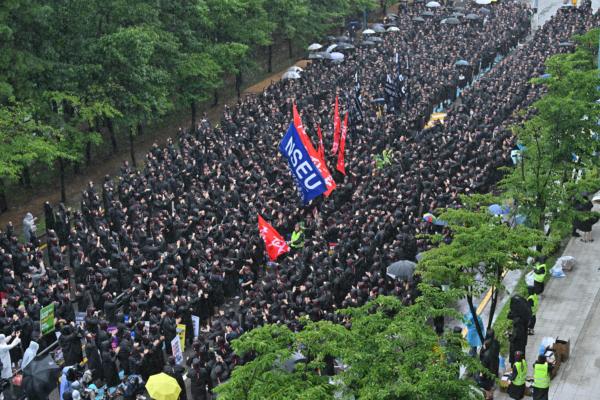Formed in 1969, South Korea’s leading chip manufacturer, Samsung Group, operated without becoming unionized until 2020. On July 8 this year, after stalled labor talks, the National Samsung Electronics Union (NSEU) announced a three-day strike. Two days later, the union announced the strike would be extended indefinitely until its demands were met. The strike, involving more than 6,500 workers, raises significant concerns over how this will affect South Korea’s competitive posture as a global chip supplier.
Samsung Discontinues Union-Free Policy
For more than 51 years, Samsung Group maintained that its union-free policy was the most effective means for nurturing relations with workers. However, in 2019, workers disagreed, and a court of law decided in their favor.This is when two of Samsung’s subsidiaries, Samsung Electronics and Samsung C&T, were charged with allegedly orchestrating clandestine efforts to dismantle the Samsung Electronics Service union. This resulted in the conviction of 26 Samsung executives by the South Korean Ministry of Justice.






